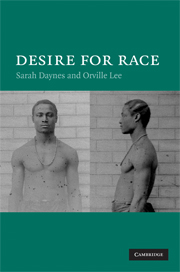Book contents
- Frontmatter
- Contents
- Acknowledgements
- Introduction
- 1 American sociology
- 2 Marxism
- 3 British social anthropology
- 4 British cultural studies
- 5 Intermediate reflections on essentialism
- 6 Belief and social action
- 7 Theorizing the racial ensemble
- 8 The politics of memory and race
- 9 Desire
- Conclusion
- Bibliography
- Index
5 - Intermediate reflections on essentialism
Published online by Cambridge University Press: 22 September 2009
- Frontmatter
- Contents
- Acknowledgements
- Introduction
- 1 American sociology
- 2 Marxism
- 3 British social anthropology
- 4 British cultural studies
- 5 Intermediate reflections on essentialism
- 6 Belief and social action
- 7 Theorizing the racial ensemble
- 8 The politics of memory and race
- 9 Desire
- Conclusion
- Bibliography
- Index
Summary
Life with its irrational reality and its store of possible meanings is inexhaustible. The concrete form in which value-relevance occurs remains perpetually in flux, ever subject to change in the dimly seen future of human culture. The light which emanates from those highest evaluative ideas always falls on an ever changing finite segment of the vast chaotic stream of events, which flows away through time.
(Weber 1949: 111)Today we mock at the strange ratiocinations that the doctors of the Middle Ages constructed from their notions of heat and cold, humidity and dryness, etc. Yet we do not perceive that we continue to apply the selfsame method to an order of phenomena which is even less appropriate for it than any order, on account of its extreme complexity.
(Durkheim 1982: 66)The fundamental premise of classical sociology is the recognition of the elusive character of reality. For Émile Durkheim, reality is not a given; ideas and feelings are impressed upon it; in Durkheim's felicitous words, “we are the victims of an illusion which leads us to believe we have ourselves produced what has been imposed upon us externally” (1982: 53). For Max Weber, reality is irrational and chaotic (1949: 111); it is multiple, and made of infinite possible combinations.
- Type
- Chapter
- Information
- Desire for Race , pp. 93 - 118Publisher: Cambridge University PressPrint publication year: 2008

